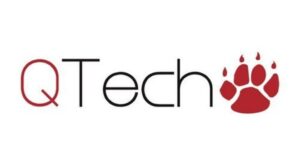Key Moments:
- The NCAA delayed its planned betting rule for college athletes and staff from November 1 to November 22.
- Strong objections from conference leaders, including a letter from SEC Commissioner Greg Sankey, influenced the postponement.
- The NCAA is currently investigating 13 athletes from six schools over potential betting violations.
Policy Launch Delayed Following Pushback
The NCAA has postponed the start date for its new policy permitting college athletes and athletic department employees to place bets on professional sports. Originally slated to begin on November 1, the rule is now set for implementation on November 22. The organization is honoring its standard 30-day period, allowing members to propose modifications or attempt to halt the rule’s introduction.
This delay comes amid heightened criticism from within the collegiate community, driven in large part by ongoing conversations regarding gambling scandals.
Conference Leaders Voice Unified Opposition
A significant factor in the delay appears to be a direct letter from SEC Commissioner Greg Sankey to NCAA President Charlie Baker. In the letter, Sankey stated: “If there are legal or practical concerns about the prior policy, those should be addressed through refinement — not through the removal of guardrails that protect the integrity of games and the well-being of participants,” as obtained by ESPN.
Sankey reported that SEC chancellors and presidents were unanimous in their disapproval of the reform, labeling it “a major step in the wrong direction.”
The NCAA had approved the policy change on October 22. Under the new policy, college athletes, coaches, and staff would have the ability to place wagers on professional sports, but not on college contests, nor could they use or disseminate inside information. This shift aims to synchronize policy with the rapid expansion of regulated sports betting across the United States and to enhance gambling education initiatives. The suggestion originated from the Division I Student-Athlete Advisory Committee, which had characterized past restrictions as excessively punitive and outdated in today’s environment.
🚨EFFECTIVE DATE CHANGE🚨the proposal to remove the prohibition on wagering on professional sports will now be effective NOVEMBER 22, 2025 if it survives the rescission window pic.twitter.com/m408RqMfXh
— WVU Athletics Compliance (@WVU_Compliance) October 29, 2025
Ongoing Integrity Concerns and Active Investigations
The postponement arrives while numerous gambling controversies continue to emerge in both professional and collegiate sports. Notably, just one day after the NCAA approved its betting rule, an NBA betting scandal brought renewed focus to the challenges around insider activity and match integrity.
The NCAA is actively investigating 13 athletes from six separate institutions for possible infractions relating to betting. One case involves a Fresno State basketball player suspended for wagering on personal performance statistics, highlighting ongoing vulnerabilities in collegiate sports.
Commitment to Education and Oversight
Anticipating the eventual rollout of the new rule, NCAA officials have pledged to introduce additional educational resources and more robust monitoring. As a result of collaborations with EPIC Global Solutions, over 100,000 participants in collegiate athletics have completed responsible gambling training. Furthermore, the NCAA Sport Science Institute has published updated recommendations focusing on athlete mental well-being and gambling risk prevention.
Opinions Divided on New Approach
The National Council on Problem Gambling has expressed its support for the rule change, suggesting it represents societal progress and could help destigmatize conversations around betting. Meanwhile, critics maintain that protecting the strong distinction between collegiate competition and gambling remains critical for safeguarding the NCAA’s integrity.
| Key Date | Event |
|---|---|
| October 22 | NCAA approved the new betting policy |
| November 1 (original) | Initial planned effective date for new rule |
| November 22 (updated) | Revised policy implementation date |
- Author


